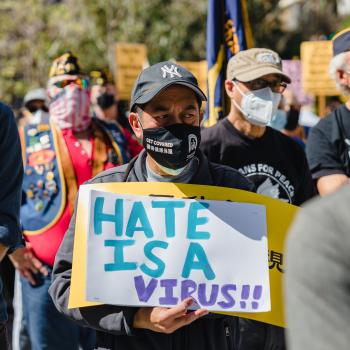 Both good and evil are made of truth. But good cannot tolerate any degree of falsehood and survive, while evil cannot survive without being disguised by some truth.
Both good and evil are made of truth. But good cannot tolerate any degree of falsehood and survive, while evil cannot survive without being disguised by some truth.
Hypocrisy is a common human deformity. We all take some measures to avoid negative scrutiny. But this is often done out of weakness or insecurity. A spiritual abuser, on the other hand, is an imposter who is methodically dedicated to the cultivation of an image, a disguise, a false personality — not just to conceal himself from others, but worse- to control them.
Spiritual abusers leverage religion as a way of securing power over our consciousness. They use God as the basis for their claims against our will, and they use the community’s needs as the basis for their claims against our rights.
The irony is that the personality of an abuser is really nothing but the alibi of a man who has not yet fully formed. The charismatic spiritual abuser is larger than life because this is the only way he can compensate himself for his own un-lived life.
The damage done by spiritual abusers like Nouman Ali Khan is only exacerbated by well-meaning leaders who advise the victims to bear the matter with patience, as opposed to giving them the license to have a normal healthy emotional reaction. Feeding them the same spiritual language that they heard their abuser preach on countless occasions is not only pernicious but also counterproductive. When we are confronted with a visual or psychological contradiction to what we believe to be true, our mind’s automatic response is to recalibrate its moral compass in the direction of moral relativism. When a community chooses to immerse itself in the religious theatrics of denial and oblivion, it is not only the truth that is compromised, but our self confidence too. We not only lose faith in others but we lose faith in ourselves for participating in the emotional bureaucracy that sanctions this kind of bad behavior.
Invocations towards patience and reminders that your trust should have been with God and not with this or that person only lay blame on the victim and shames them for what you are implicitly suggesting is their stupidity.
Victims are entitled to a normal human response and do not have to feign piety and patience for the benefit of our communal redemption. When an injustice is inflicted, the advice to deal with it like a saint, to absorb the pain and pretend that it has made us into a better person instead of a bitter one, is often the very thing that leads grown men to atone for their emotional deprivation through the emotional manipulation of others.
Asking someone to take the high road after having been victimized by a low life is not only denying them the right to be human but it’s doing violence to their already injured soul.
Why do leaders in our community sanction bad behavior? Perhaps they secretly don’t feel that such behavior is all that bad. In fact, it’s quite common and socially acceptable, at least in the inner male-dominated subculture of the patriarchal religious aristocracy. Perhaps those who know when to look the other way instead of to look more closely tend to see more clearly. We turn a blind eye to people’s indiscretions as a courtesy we extend to those who need to save face. It’s an eastern approach that serves a very important societal function: Mainly to protect generally decent people by affording them the occasional free pass.
Hey, nobody is perfect!
But to be a leader in a religious space does not only require academic excellence in religious jurisprudence. To be a leader in the Muslim community you must also commit yourself to a higher standard of behavior. Higher than those of us who do not lay claim to the platform, the podium, the perks, or the privileges that so many rock star Muslim gurus enjoy.
After all, the religious life was not meant to compete with practical survival or success. It was not meant to furnish men, who are neither interested in survival nor capable of success, with a career option to which society will be asked to provide all the benefits and reap none of the rewards. There is no reward in enabling a spiritual abuser. Not in this life or the next.










